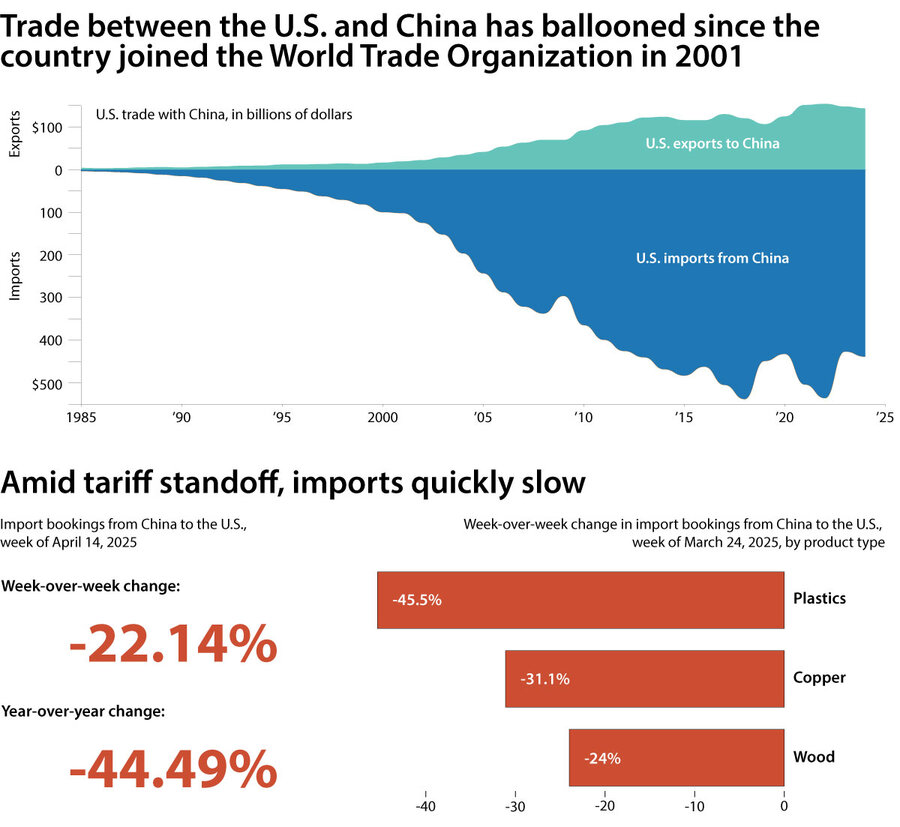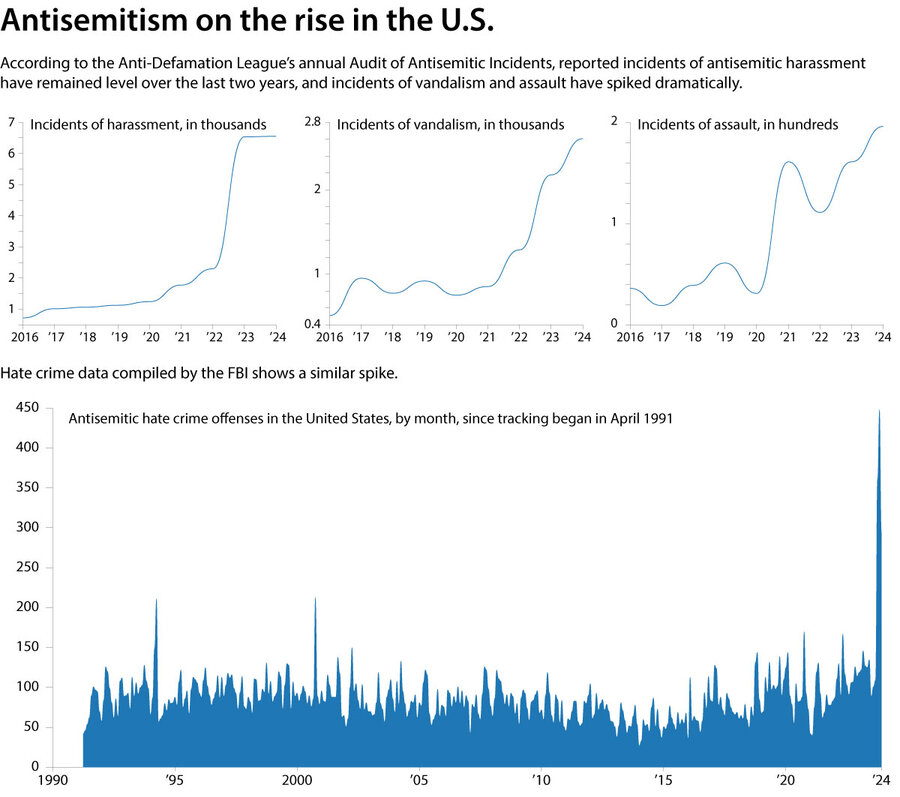Russia launched a sweeping air assault on Ukraine. The attacks came after U.S. President Donald Trump cast doubt on Russian President Vladimir Putin’s willingness to end the war. Ukrainian officials said three people were killed and four wounded Sunday in airstrikes in the Donetsk region. Another person was reported killed and a 14-year-old girl wounded in a drone strike in Dnipropetrovsk. U.S. Secretary of State Marco Rubio called this week “very critical” for efforts to end the war. – The Associated Press
The World Food Programme is running out of money. On Friday, it reported a shortfall of $698 million out of the nearly $800 million it says it needs to feed 7 million people from May through September. Donor states are reducing contributions. The shortage comes as conflicts escalate in Sudan and Gaza, which faces border closures. In Gaza, where another 51 people were reported killed in weekend airstrikes, groups say supplies will soon run out, and that thousands of children are malnourished. – Reuters, AP
Iran’s president visited survivors of a port explosion. Masoud Pezeshkian met Sunday with some of the 1,000 people injured in an explosion that rocked one of the Islamic Republic’s main ports, killing 40. The facility purportedly had been linked to an earlier delivery of a chemical ingredient used to make missile propellant. Iran’s military sought to deny the delivery of ammonium perchlorate from China. – AP
The Trump administration is reinstating foreign-student records. Some terminations in a Homeland Security database had appeared tied to minor legal issues, students’ lawyers said. The government announced the reversal in court Friday, after causing confusion for thousands of students around deportation risks.
This month, federal courts heard more than 100 lawsuits based on the terminations and issued more than 50 restraining orders, Politico reports. It remains unclear whether the State Department will restore students’ revoked visas. Those travel documents are separate from, but related to, their status. – Staff
Poll shows mixed views on U.S. immigration moves. About 46% of U.S. adults surveyed approved of President Donald Trump’s handling of immigration, in a poll by The Associated Press-NORC Center for Public Affairs Research. That’s nearly 10 percentage points higher than his approval rating on the economy and trade. About half of Americans said Mr. Trump has “gone too far” with deportations. About one-third called his approach “about right”; about 2 in 10 said he has not gone far enough. – AP
Former U.S. Rep. George Santos was sentenced. The New York Republican had pleaded guilty last summer to federal wire fraud and aggravated identity theft. Mr. Santos admitted he deceived donors and stole the identities of nearly a dozen people to fund his congressional campaign. He served less than a year in Congress before being expelled in 2023. – AP
Sales for U.S. founding documents have surged. Editions of the Declaration of Independence, the Federalist Papers, and the U.S. Constitution are selling at their fastest pace since 2004, according to Circana, a market research group. Pulitzer Prize-winning historian Jon Meacham has written introductions for two forthcoming books on the early documents. “One way to address ... what Saint Paul would call the ‘tribulations’ of the present time,” Mr. Meacham said, “is to re-engage with the essential texts that are about creating a system that is still worth defending.” – AP














